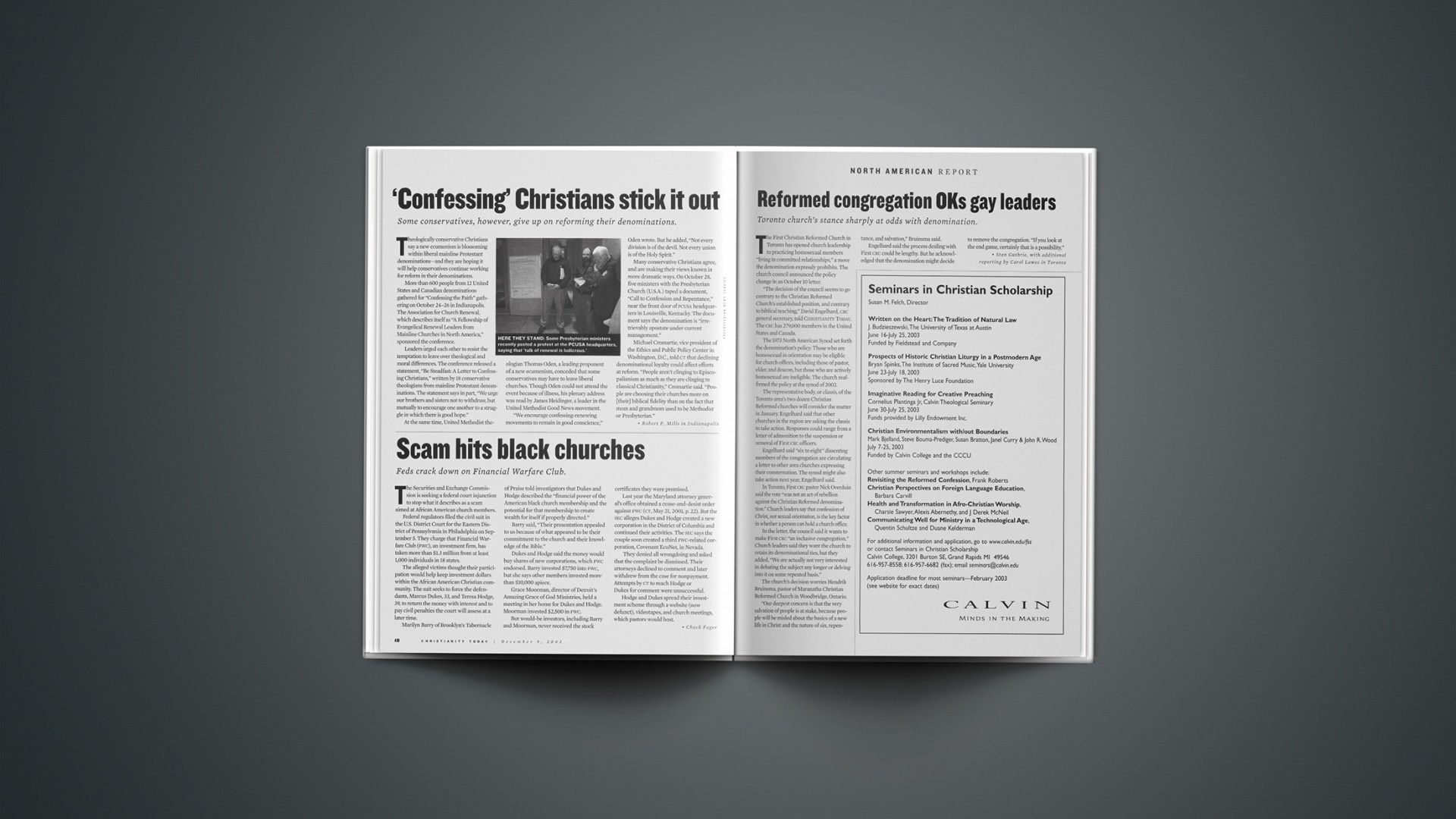The Securities and Exchange Commission is seeking a federal court injunction to stop what it describes as a scam aimed at African American church members.
Federal regulators filed the civil suit in the U.S. District Court for the Eastern District of Pennsylvania in Philadelphia on September 5. They charge that Financial Warfare Club (FWC), an investment firm, has taken more than $1.3 million from at least 1,000 individuals in 18 states.
The alleged victims thought their participation would help keep investment dollars within the African American Christian community. The suit seeks to force the defendants, Marcus Dukes, 33, and Teresa Hodge, 39, to return the money with interest and to pay civil penalties the court will assess at a later time.
Marilyn Barry of Brooklyn’s Tabernacle of Praise told investigators that Dukes and Hodge described the “financial power of the American black church membership and the potential for that membership to create wealth for itself if properly directed.”
Barry said, “Their presentation appealed to us because of what appeared to be their commitment to the church and their knowledge of the Bible.”
Dukes and Hodge said the money would buy shares of new corporations, which FWC endorsed. Barry invested $7,750 into FWC, but she says other members invested more than $10,000 apiece.
Grace Moorman, director of Detroit’s Amazing Grace of God Ministries, held a meeting in her home for Dukes and Hodge. Moorman invested $2,500 in FWC. “The presentation placed a great deal of emphasis on IPOs [initial public offerings] as the way to acquire wealth,” she told federal officials.
But would-be investors, including Barry and Moorman, never received the promised stock certificates.
Last year the Maryland Attorney general’s office obtained a cease-and-desist order against FWC (CT, May 21, 2001, p. 22). But the SEC alleges Dukes and Hodge created a new corporation in the District of Columbia and continued their activities. The SEC says the couple soon created a third FWC-related corporation, Covenant EcoNet, in Nevada. Attempts by CT to reach Hodge or Dukes for comment were unsuccessful. They denied all wrongdoing and asked that the complaint be dismissed. Their attorneys declined to comment and later withdrew from the case for nonpayment.
Hodge and Dukes spread their investment scheme through a website (now defunct), videotapes, and church meetings, which pastors would host. Hodge and Dukes have had problems in the past. The National Association of Securities Dealers barred Dukes from selling securities in 1995. Hodge petitioned for bankruptcy four times between 1996 and 1999.
Copyright © 2002 Christianity Today. Click for reprint information.
Related Elsewhere
Previous Christianity Today coverage of this case includes:
Financial Warfare Club Under Legal CloudMaryland attorney general issues cease and desist order against company aimed at African-American Christians. (May 3, 2001)
The U.S. Securities and Exchange Commission has posted a press release and its complaint against the Financial Warfare Club.
See Chuck Fager’s other articles for Christianity Today on similar cases of financial irregularities.










